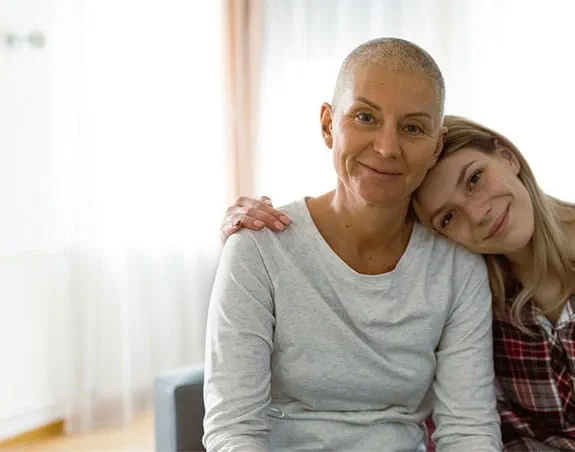Help us get better at palliative care
Take action on palliative care
We believe that everyone in Canada should have a right to access affordable, culturally safer, high-quality palliative care regardless of where they live and in what setting they choose to receive care.
Everyone deserves care that provides comfort, dignity and choice when facing a serious illness. Palliative care achieves this by helping to manage symptoms, reduce pain and improve comfort. Quality palliative care leads to better outcomes for people and their families and has the potential to lower healthcare costs and take pressure off the healthcare system.
Tell the federal government: Renew funding to make palliative care accessible for every family
In December 2018, the federal government launched its Framework on Palliative Care in Canada.
While there has been some improvement, only 58% of people who die from a serious or chronic illness get access to palliative care in Canada, and half of those are only identified as needing palliative care 22 days or less before their death. Plus, we don’t have any data or standards to measure the quality of care people receive.

As Health Canada’s progress report indicates, there is still work to be done. We are calling on the federal government to invest another $29.8 million over four years to:
- Establish national standards and systematically collect data on palliative care across all care settings.
- Deliver comprehensive education and training for healthcare providers to embed a palliative approach throughout the health system.
- Advance research to identify, refine, and scale best practices in palliative care – with a focus on grief, bereavement, and equitable access.
- Implement the National Grief Action Plan and Health Canada’s distinction-based frameworks for palliative care for First Nations, Inuit and Métis peoples.
At a time when we need to transform how we deliver care in Canada, palliative care providers already know how to manage many of the challenges we face in our healthcare system. Palliative care professionals know how to:
- Have difficult conversations with patients and their families/loved ones.
- Coordinate care across systems and settings.
- Ensure patients and their families have the practical, emotional and spiritual support they need.
- Help caregivers cope with the challenges and realities of caring for people with a serious illness.
Investing in them will give them the capacity to help lead the system transformation we need to deliver person- and family-centered care.
Palliative care lets you focus on what matters, when it matters most
Palliative care lets you focus on what matters, when it matters most
Boni's Story
Rob's Story
Elaine's Story
Ollie's Story
What we are doing
Everyone in Canada should have access to affordable, culturally safer, high-quality palliative care regardless of where they live and in what setting they choose to receive care. We promote and support the need for improved development and delivery of early, active, competent and compassionate palliative care. This includes expert pain management; skilled psychosocial, emotional and spiritual support; and comfortable living conditions with the appropriate level of care – whether at home, in a hospital, at hospice residences or in any other settings of choice.
CCS recognizes that facing a life-limiting illness, especially in relation to pain and suffering, can cause great concern and severe hardship. Canadians should have access to affordable, culturally safer, high-quality palliative care from the point of diagnosis with a life-limiting condition regardless of where they live and in what setting they choose to receive care. CCS’s efforts remain focused on ensuring that people with cancer have access to the information and support services they need. CCS supports a person-centered, coordinated care approach. Palliative care should be accessible to all regardless of gender, age, income, race, sexuality or other socially determined circumstance.
Help amplify the voices of people affected by cancer
Changing public policy is one of the most effective tools for preventing cancer and helping those affected by it.
With just $5 from people like you, we can continue to connect government decision-makers with thousands of patients and caregivers to make cancer care better, everywhere in Canada.
If everyone reading this gave just $5, we could achieve our goal this month to fund transformative advocacy, the most promising research, and reliable cancer information and support. Please give today. Thank you.
